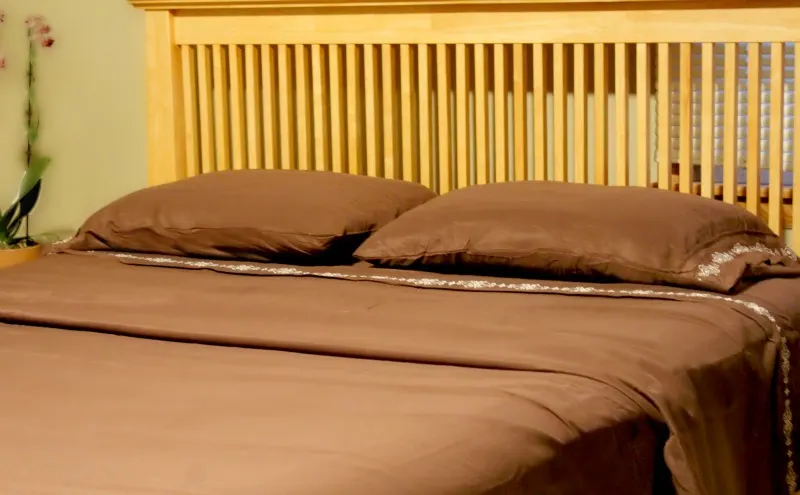Getting a good night’s rest is a very important part of our overall health and well being.
After a busy day sometimes all we can think about it getting our recommended 8-9 hours of sleep but no matter how tired we may be, insomnia can strike and prevent us from getting the rest we need to recharge.
It seems that doctors know very little about what causes insomnia and what’s worse is that they know even less about how to cure it but their patients are suffering at an overwhelming rate.
Millions of people each year are reporting that they are suffering from insomnia and they are desperately seeking out treatment options to help get a full night of rest.

As with most ailments that scientists as well as doctors know little about, the treatment options are riddled with side effects and this leaves many patients suffering while seeking out a more natural approach to help them overcome the condition.
Tips to Overcome Insomnia Naturally
Although technology is making our lives easier in many ways it is over stimulating our minds while keeping many people from being able to turn off their devices and completely shut down for the night.
Experts suggest shutting down all electronics including cell phones at least a half hour before heading to bed. It seems the bright lights and constant information overload keeps our minds active even after we shut them off so to help fight off insomnia it’s best to turn off our devices earlier in the evening.

Instead of keeping busy before bed with a tablet or television try reading a book or writing down your thoughts from the day in a journal. This can help relieve stress and prepare your mind as well as your body for rest.
The temperature of your bedroom is a very important factor when suffering from insomnia and trying to get comfortable for a good night’s sleep. If it’s possible to set a temperature control in your bedroom to drop a few degrees in the middle of the night this may help prevent you from waking up and tossing and turning.
As you reach a deeper sleep your body temperature rises and sometimes this could cause you to wake up and have a hard time going back to sleep.

Heading to bed a little early may be the key to warding off insomnia for some although others may need to wait until the last possible minute to head to bed.
If you suffer from other ailments like restless leg syndrome you may need to stay active until the end of the day but if not maybe try heading to bed right after the sun goes down for a few nights to see if this is the key to you getting a good night’s sleep.
Adding a fan may be a good idea even in the Winter but be sure to have comfortable blankets available to ensure you can grab them when the temperature drops.
The most important factor when trying to overcome insomnia naturally is comfort. Picking up a new comforter set can add a whole new feel to your room and make you feel like you are visiting a resort. Adding a few throw pillows is a great way to add a little more comfort to your bed and it certainly makes it look more inviting.

When updating your bedding set don’t forget the sheets, this may be the most important element in my opinion.
I have found myself tossing and turning in the past and usually I am making a mental note to buy new sheets in the morning because my current ones are itchy, hard, or just not good enough for one reason or another.

Pick up this Dark Roast 6-Piece Embroidered Sheet Set and you will be snuggled in your bed wrapped in these microfiber sheets on your way to a good night’s sleep in no time.
This set includes 1 Flat sheet, 1 Fitted sheet, and 4 Pillowcases in a beautiful chocolate and white.

Another great tips for naturally fighting insomnia that helps many is aromatherapy. Luckily, you don’t have to head to a specialist to start trying this treatment in your home.
Grab a couple of scented candles or essential oils like lavender or chamomile and if the season allows have fresh flowers by your bed as this will help fill the room with a relaxing scent.
Have you ever suffered from insomnia? What are some tips or tricks that have helped you get a good night’s sleep?
About Thirty Something Super Mom

My journey started after a Crohn's disease diagnosis, inspiring a commitment to well-being. This site shares my distinctive approach to healthy living with my collection of nutritious recipes that boast authentic flavors, mimicking the indulgence of traditional dishes. I love sharing guilt free recipes for low carb, keto, gluten-free, paleo, and the specific carbohydrate diet. I also share tips on natural living, including homemade cleaners and cleaning hacks. I also share my experience as a veterinary technician and pet groomer, to integrate pet health tips, homemade dog food recipes, and grooming insights to ensure your pets thrive.



April Monty
Thursday 9th of February 2017
These are some really useful tips ,I have a lot of issues sleeping through the night .
CourtneyLynne
Monday 8th of February 2016
These are some fabulous tips!!!! Whenever I can't sleep I surround myself with lavender everything. Very relaxing.
Dave
Sunday 7th of February 2016
Thanks for the info I would also like to add that a nice herbal tea like Chamomile before bed can be a help...
Melissa
Monday 8th of February 2016
Chamomile tea is a great way to relax, thanks for the tip!
Life+as+a+Convert
Saturday 6th of February 2016
Using my computer or phone before bed keeps me awake longer. I can definitely go to sleep sooner if I read instead.
Cara (@StylishGeek)
Friday 5th of February 2016
Whenever I business travel overseeas I always experience insomnia! Thanks for the tips in your post! Lately I have been trying melatonin and chamomile tea.